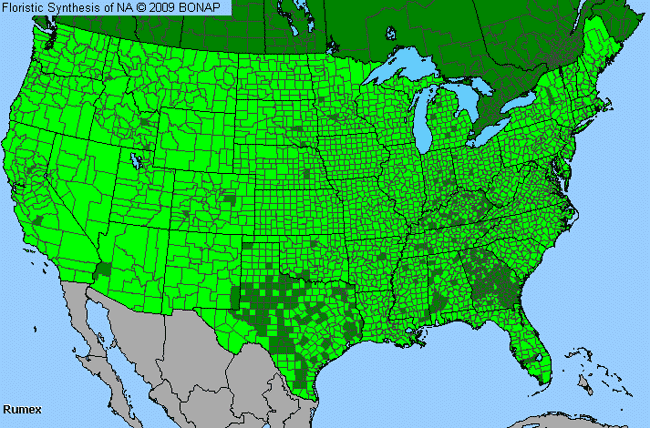Dock, Sorrel (Rumex)

Dock, Sorrel Genus Details

Species of Rumex can be either annual or perennial. The flowers of Rumex are small, dense and come in a variety of colors, from yellow to brown. Rumex is wind pollinated and most species shed abundant pollen that travels far from the plant.
Dock, Sorrel Allergy Info

Dock is a great potential cause of seasonal allergies. The pollen travels well in the wind, and has caused many positive skin tests in allergy patients. Since Rumex pollinates in a similar time frame to grass, some allergy sufferers may confuse their allergy to Rumex with allergy to grass.
Dock, Sorrel Pollen Description

Pollen grains are oblate-spheroidal to prolate with a thin sexine; the amb rounded triangular to circular and 3-4 colporate. The colpi are long and narrow and the pores are lolongate.
Pollen grains vary in size from 15-35 micrometers.
Species in This Genus

Allergenicity Legend:
 Mild Allergen |
Mild Allergen |
 Moderate Allergen |
Moderate Allergen |
 Severe Allergen |
Severe Allergen |
 Allergy Test Available
Allergy Test Available
Dock, Sorrel (Rumex) is a genus of the POLYGONACEAE family.
This genus includes the following allergenic species:
This genus includes the following allergenic species:













